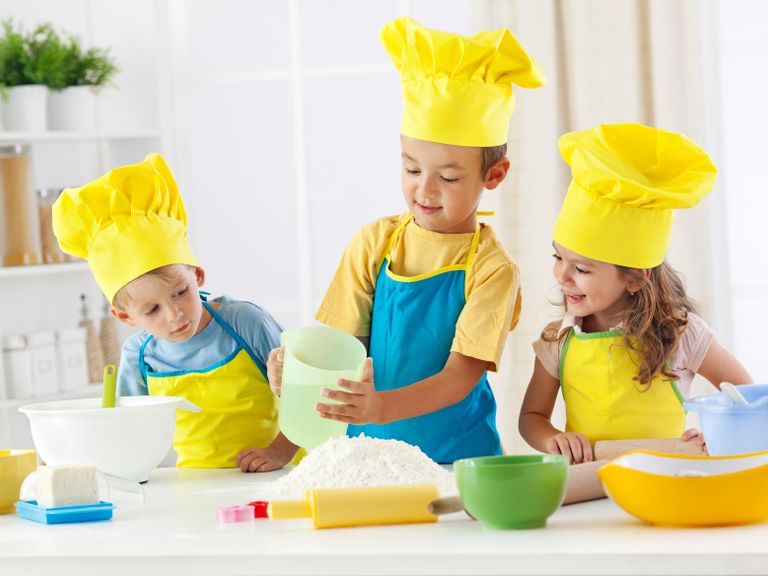Our School Readiness Policy
Our aim is to support children to develop a range of skills, knowledge and understanding that assists in the transition to Reception. This is about developing confidence to engage in Reception classroom activities.
Some local Independent Schools offer parents an assessment meeting. This is to assess whether their child has the aptitude to learning conducive to their teaching environment. We support children to be ready for these assessments.

Development of Self
We will support children to develop their self-awareness ready for the school environment. We support them to develop a range of skills and provide learning experiences that mirror those in a Reception classroom.
Our qualified teaching staff provide pedagogical leadership to design and lead these activities.
Resilience
We support children to develop resilience. Having a go, trying new things, recognising success and asking for help, are all key skills for developing task resilience.
Speaking and Listening
We support children to develop their speaking and listening skills. Being heard and listening to others is important in managing self and others.

We ask our children from 3 years of age to join in with 'group time' each day. This can be a quiet time for children to sit together and to listen to others ideas, engage in focused discussion as a group, to take turns and to develop greater concentration in a social activity.
It can also be a lively discussion with music and movement to stimulate thinking and discussion, and to inspire their ideas for the tasks ahead.
We provide them with information about the topics for the learning activities for the day. We talk about choices and what is expected for their learning.
Concentration
We support children to develop their concentration to complete Reception-style tasks. We support them to follow instructions and listen well.
Confidence
There are lots of areas of self-development that children need to be confident in Reception. They need to understand about lining-up, taking turns, sitting in assembly, getting dressed and finding things in the classroom. They need to navigate break times and lunch times. We support them to develop this awareness.
Writing and Drawing Development
We will support children to develop an understanding of writing. This is about developing confidence to engage in Reception classroom style writing and drawing activities.
Pencil Control
We support children to develop their pencil grip. We use specialist activities to develop finger, hand, wrist and arm muscle memory to help them be able to develop their control.
Drawing Control
We support children to use different art materials including paint brushes, stampers, scrapers and sponges to develop their control of drawing and painting.

Scissor Control
We support children to develop their scissor control. We use specialist activities to develop steady control of scissors for cutting.
Position and Style
We support children to find comfortable positions for writing and painting.
We stand up, sit down, and move around whilst expressing ourselves too.
Reading Development
We will support children to develop an understanding of phonics. We will draw upon a range of phonics programmes and reading schemes to support early reading success. This is part of a Systematic Synthetics Phonics Programme. Children will be encouraged to read books at home and choose books from our library to share at home.
Expectations
We will support children and parents to understand expectations of phonics learning in the Early Years and the transition to Reception.
Phonics
We will teach children phonics as a way of reading simple CVC (constant, vowel, constant) words in short stories.
We will use songs, stories and structured activities to practice speaking and listening to the sounds.

Sight Words
Children will also be encouraged to develop sight vocabulary.
By reading books with repetition, we will support children to learn a range of tricky words.
Books
We will provide children with reading materials to read at home and to share with others at home.
Where a child is able to read, we will extend experiences and reading materials to suit their needs.
Maths and Science Development
We will support children to develop an understanding of maths and science concepts. We will draw upon a range of maths programmes and science themes to support early STEAM success. Children will be encouraged to take part in varied activities where maths and science is integral to learning.
Maths in everyday life
We will support children and parents to understand maths in everyday life at home and school. For example, when baking we will measure, weigh, compare sizes and shapes.
Science in everyday life
We will support children to experience and understand science concepts. For example, freezing and melting, pushing and pulling, fast and slow, colour changes and how the human body changes.

STEAM
Our project-play approach means that we support children to use their skills in holistic STEAM projects. For example, junk modelling to make buildings/homes, junk modelling to make vehicles to race, beebot programming to navigate a maze.
Technology
We will support children to experience a range of technology and electronic equipment within learning.
Dated: 12 September 2024 Review date: December 2025
